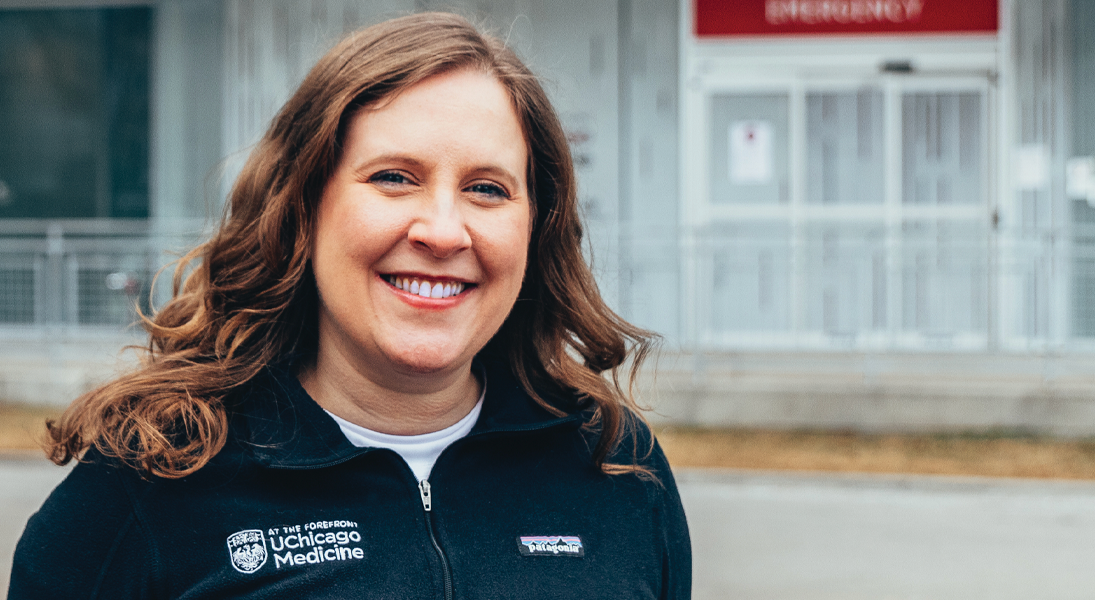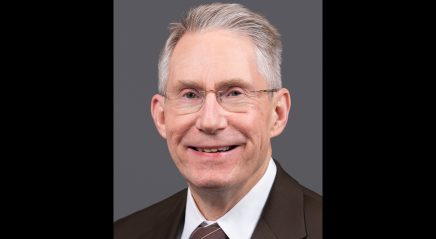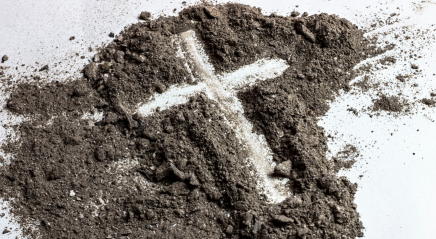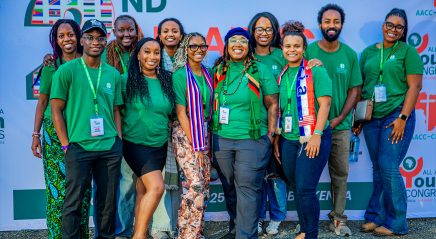Bethany Lutheran Church, Crystal Lake, Ill.
Executive medical director for infection prevention and control at University of Chicago Medicine, doctor, chief hospital epidemiologist, assistant director of medical ethics
I was the fourth generation of my family to attend Augustana College. I went in as a music major and sang in the choir. Midway through, I knew I wanted to do something more with people. I went to see my microbiology professor and said, “I would love to be a doctor if I could take care of patients with infections.” She told me I could be an infectious disease doctor. I told myself, if I could get into medical school, I’ll go.
When you start medical training, life gets really busy. One request I always make about my schedule: I want to be off for Christmas Eve. Even the year I was getting a divorce. It was my first Christmas Eve alone, and it was really tough. I went to church by myself and cried the entire time. It felt very healing. This year, I joined my church on YouTube—and it was great. I had my own little candlelight service at home.
What I like about working at University of Chicago Medicine is that, in one room, you might have someone from three states away, here for a rare diagnosis or a procedure that only we can do, and, in the next room, a woman from two blocks away on the South Side of Chicago with an asthma attack. Everyone gets the same care and attention. I see the effects of health care disparities due to systemic racism every day, and I work actively to try and fix that.
I managed the hospital’s COVID-19 response from the medical standpoint. My No. 1 goal was to protect patients and health care workers from each other. Hospitals are hotbeds of infection, so there’s a lot that goes into preventing infections from spreading quickly. It’s the most interesting job in the world.
The goal of many churches is to bring people together, and right now that’s really hard. I think that ELCA congregations have done a great job figuring out ways to build community safely. I think there’s a big opportunity for the ELCA to help fight vaccine hesitancy and help lead the way out of this mess.
Over the past year, I’ve prayed so much. At times, I felt like I couldn’t do a lot more than that. I pray for my family and friends. I pray for my patients. I pray for all the health care workers. I pray that I have made good decisions. I pray for people who don’t believe in wearing masks and those who think COVID is a hoax. I pray that people can get vaccinated quickly. I pray for our leaders. I ask for a lot of wisdom.
Faith is one thing that really helps me get through tough times: just holding the hand of a patient who’s dying or having the strength to tell someone they have cancer—and actually being able to feel pain with them. It doesn’t always make things easier, but it does make them meaningful.
I keep hearing from people, “Oh, God will protect us from COVID-19.” That’s like saying God will protect me if I drive wildly on the road. I think God gave us the coronavirus, but he also gave us epidemiologists and science; I’m pretty sure he wants us to figure out what to do. We have to respect this virus and use the tools we have to prevent its spread. That includes hand-washing, distancing ourselves from others and wearing masks.
The timeline for this pandemic is not clear to anyone. We’re going to need a lot of people to receive the vaccine—and that’s going to take some time. Most people will have access to the vaccine by summer, but it’s likely we’ll be wearing masks into the fall. I hope we’ll stop seeing masks as political. We’re definitely going to need a bit of a shift in attitude to defeat this virus.
Bethany has been my church home since birth. I was baptized and confirmed there. We were always at church; I know every nook and cranny of that building. My mom was in the altar guild and the choir, and I sang in the choir from first grade through high school. They still let me sing when I’m there even if I can’t come to rehearsals.
My experience with music is very spiritual. When I first moved to the city, I joined what was then the Lutheran Choir of Chicago. I’m still part of the choir; now they’re more ecumenical and go by the name “Lux Cantorum.” Prior to the pandemic, we practiced every Monday night for two hours singing sacred music—that’s where my spirituality came alive.
My mom was such an influence in terms of how much she did to help other people. We had service to others on our plates no matter what—it was just built into our lives. We visited people in nursing homes and helped out with neighbors and friends—really, whatever needed to be done, we did. Both my sister and I carry this tradition with us as a key part of who we are.
My faith informs my parenting. I’m teaching my son about inclusive acceptance and to do the right thing even if it’s hard.
I’m a Lutheran because it’s my tradition. It’s what I grew up with, and it’s the right thing for me today. As a child, I loved that my congregation had a woman pastor. I’m really proud the ELCA was one of the first churches to accept LGBTQIA+ individuals as pastors and members. I love that anyone and everyone is allowed to receive communion: that’s what I feel in my heart is the closest to what Jesus would want.








